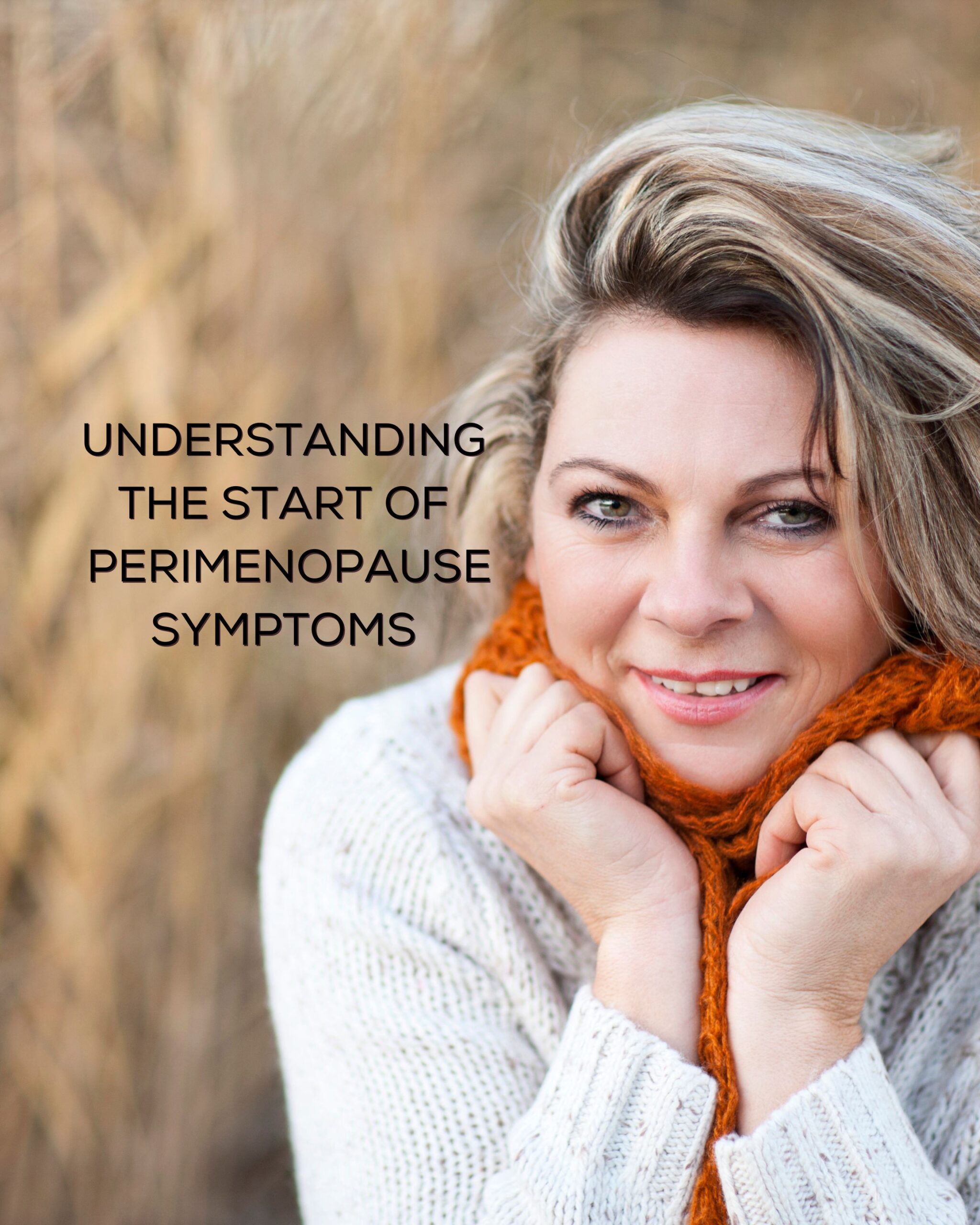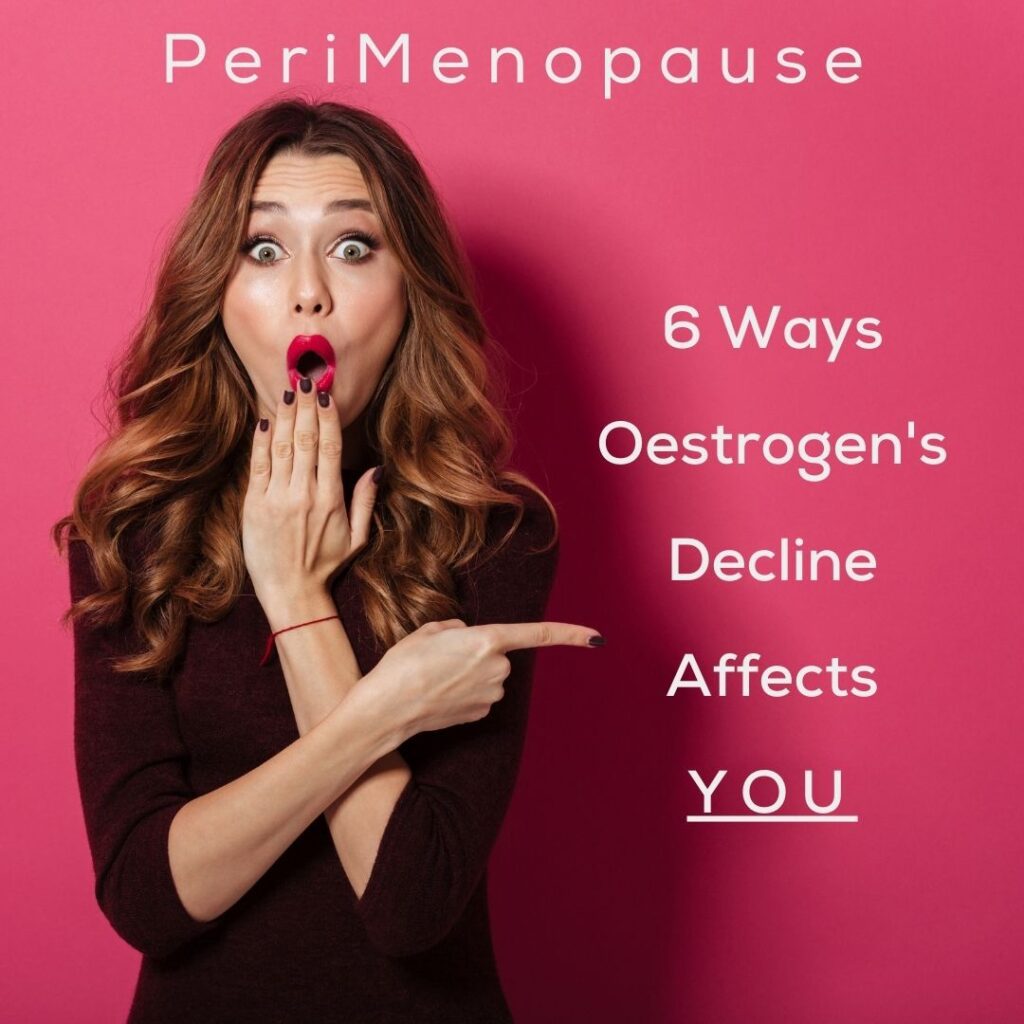The Start of Peri-Menopause is a significant phase in a woman’s life, often accompanied with a range of symptoms that can effect physical, emotional, and cognitive health.
So today we I am going to try and help you understand some of these symptoms and their underlying causes so you can help in manage and alleviating them.
*Perimenopause is the time between the start of the decline of your hormones and the cessation of your period.
Your Brain and Menopause
Peri-Menopause starts in the brain. Yes True Fact!!
Research indicates that the brain is the first organ to show signs of menopause, even before physical symptoms appear. This is due to the decline in oestrogen levels, which affects brain function.
Oestrogen is crucial for the brain’s energy production, and its reduction can lead to symptoms such as:
- Brain Fog: Difficulty concentrating, and memory lapses are common. Oestrogen supports cognitive functions, and its decline can make it harder to focus and remember things.
- Mood Swings: Changes in hormone levels can impact neurotransmitters like serotonin, leading to mood swings, anxiety, and depression.
- Sleep Disturbances: Oestrogen influences sleep patterns. Lower levels can lead to insomnia and disrupted sleep.

Understanding these brain-related changes is important for better managing perimenopause symptoms.
Activities that support brain health, such as regular physical exercise:
- Including Cardiovascular exercise such as walking or jogging can help with brain fog and hot flushes.
- Strength training helps with mood, muscle and bone density.
- Yoga for helps with Sleep Issues. Another True Fact!
Nutrition and Menopause
Diet plays a crucial role in influencing perimenopause symptoms. Proper nutrition can help mitigate many symptoms and improve overall well-being. Key nutritional strategies include:
- Phytoestrogens: These are plant-based compounds that mimic oestrogen in the body. Foods rich in phytoestrogens, such as flaxseeds, chickpeas, and broccoli, can help balance hormone levels and reduce symptoms like hot flushes and night sweats.
- Calcium and Vitamin D: These nutrients are essential for bone health, which can be compromised during menopause. Dairy products, leafy greens, and fortified foods are good sources.
- Omega-3 Fatty Acids: Found in fatty fish, walnuts, and flaxseeds, omega-3s can help reduce inflammation, improve mood, and support brain health.
- Antioxidants: Foods rich in antioxidants, such as berries, nuts, and green tea, can combat oxidative stress and improve overall health.

Maintaining a balanced diet that includes a variety of fruits, vegetables, lean proteins, and whole grains is also important to support overall health during menopause.
Managing Symptoms Holistically
A holistic approach to managing menopause symptoms involves:
Supporting Brain Health: Engage in activities that stimulate the brain, manage stress effectively, and ensure regular physical activity.
Adopting a Nutrient-Rich Diet: Incorporate phytoestrogens, calcium, vitamin D, omega-3 fatty acids, and antioxidants into your daily diet.
Listening to Your Body: Pay attention to your body’s signals and adjust your lifestyle and diet accordingly. Its really important to seek support from healthcare professionals when needed. Often our mood can slip, our thoughts can be negative, so its important to remember there is lots of support available and you are not alone in this.
Knowledge is Power and understanding perimenopause symptoms and their underlying causes can empower women to navigate this phase of life more comfortably and confidently.
By integrating brain health strategies and nutritional support, it’s possible to alleviate symptoms and embrace a healthier, more vibrant life during menopause.
If you need any more advice or help please reach out to us here at the Healthy Edge.
Our whole aim is to support you and help you get through this time in life!




